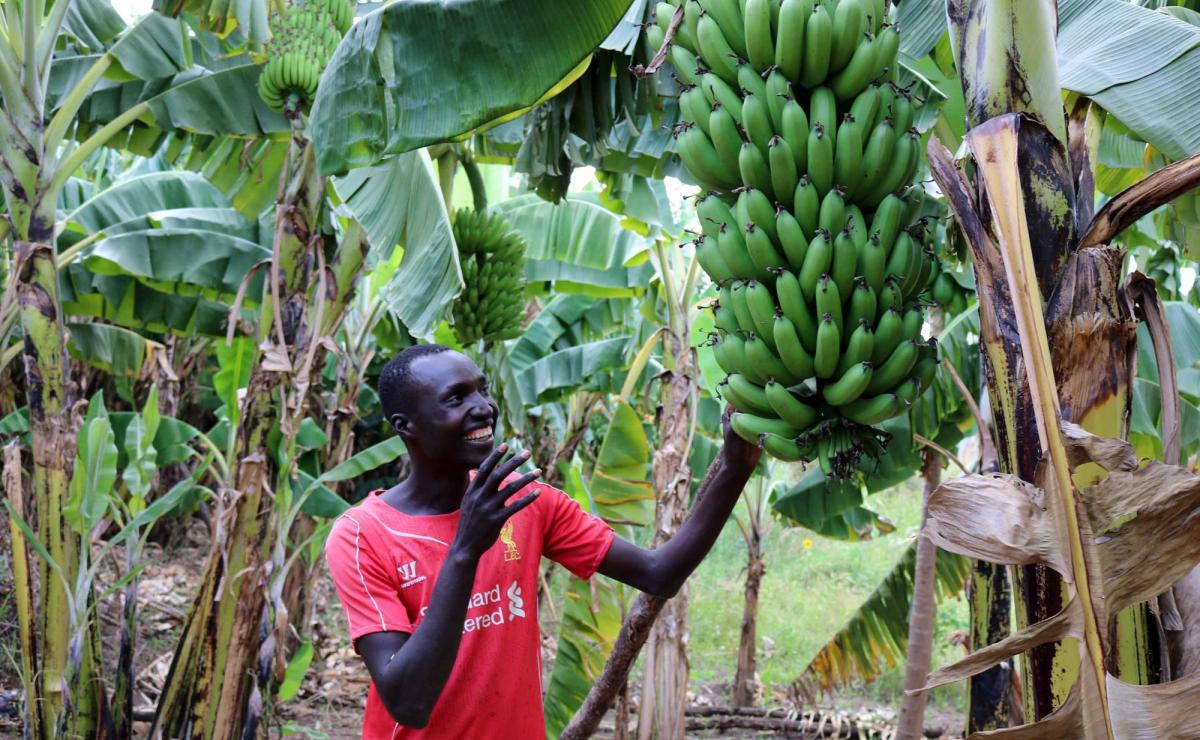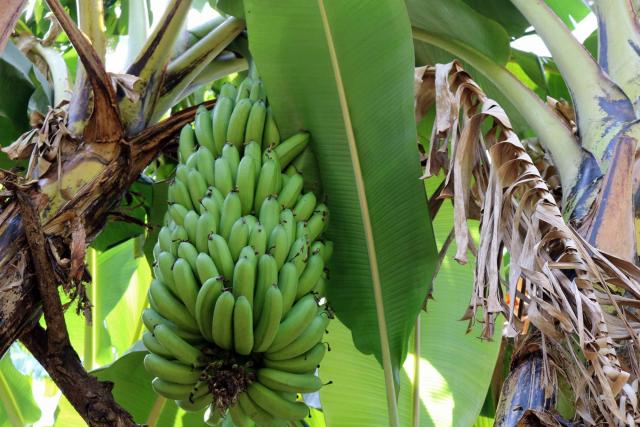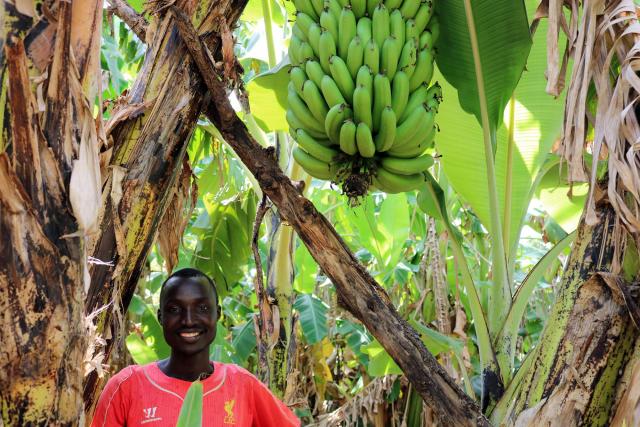Tony Okot is reaping big from bananas

For Tony Okot, a 22-year-old banana farmer in Williwilli village, Pader district, bananas will always be looked at as a treasure. The harvests from his one-acre banana farm have helped pull the fangs of poverty out of his life.
He now owns a motorcycle which he bought with profits from selling his bananas. “I use the motorcycle for boda-boda business (transport for money) but I chose to keep my focus on banana farming because it pays off big,” a jolly Okot confesses.
He grew up with an eye for banana farming and ventured in the practice at the age of 13 in 2008. At the time, he was only doing it to get school fees for his education; having lost his father who was the family’s sole breadwinner.
For three years, Okot, then a P.7 pupil tilled his father’s land, planted and harvested enough to sell for his school fees and needs. Unfortunately, disaster struck his farm and the hope of raising the fees faded right out of him.
“My garden was infested and destroyed by pests. I didn’t have money to buy pesticides so it perished right before my eyes,” Okot explains. For some time, he decided to quit banana farming. This meant that he had to drop out of school as the source of his school fees was no more.

His comeback
In 2015, Okot resolved to try his luck in banana farming again and see where it would lead him this time. He replanted bananas at a larger scale. He then sought training in agronomy, pest control and management, post-harvest handling, value addition and financial management from LWF with funds from Church of Sweden.
“Okot was trained with other farmers and potential ones in Pader district. The training was to avail them knowledge and skills in improved farming practices for improved incomes and food security at both household and community level.” Said Naomi Acara, LWF Sub Program Manager for Pader.
With better skills, Okot dedicatedly looked after his bigger banana plantation and vowed not to let it perish like the previous one. “I knew I was venturing into a business that would develop; one from which I would earn a living for decades,” he explains.
Okot sought out the best spot for his garden with good soils and enough water from underground. “I chose this spot because the soil texture is good for agriculture. It also has a field of underground water that would support my plantation even during the dry seasons.”
While preparing his garden, Okot implemented the skills and knowledge he acquired from the LWF training. He opened his land, prepared it and spaced his banana suckers appropriately. Now that the plantation has grown, he weeds it often, mulches it by covering the ground and banana roots with leaves to prevent soil erosion and also applies animal manure. “I make sure the soils are not washed away with their nutrients, I also dug small canals to collect and streamline water in the garden whenever it rains,” he explains.

Banana farming pays off
In 2016, Okot fetched his first harvest after ten months of waiting. He sold and earned about Ush 500,000 “Market for my bananas was readily available in my community since they are scarce,” says Okot; explaining that there are a few banana farmers in Pader due to the hot unfavourable weather.
He sold off all his harvest in less than a week. It is this money that he used to buy his motorcycle which he also uses to transport his produce to the market. He saves enough money to use throughout the next agriculture season and also enough to meet his financial needs.
Since the first harvest, Okot has never turned back on the farm. He has since extended his farm to own a second plantation in the same area and earns more than before. “More production means more sales and money. That’s why I want to continue expanding my agriculture business,” states the now financially stable Okot. According to him, he currently earns a minimum of Ush 500,000 per season.
With profits from his banana business, the 22-year-old has diversified and is now into livestock and apiary farming. “I have bought goats and pigs, established a honey bee farm from which I harvest and sell honey twice a year,” Okot reveals. “I don’t need to depend on anyone to meet my household’s financial needs anymore because I earn enough. My son and wife don’t lack any basic needs and I am a happy farmer,” he concludes.
Many thanks to Church of Sweden for the support towards LWF's development activities aimed at improving livelihoods and food security in Pader district.

